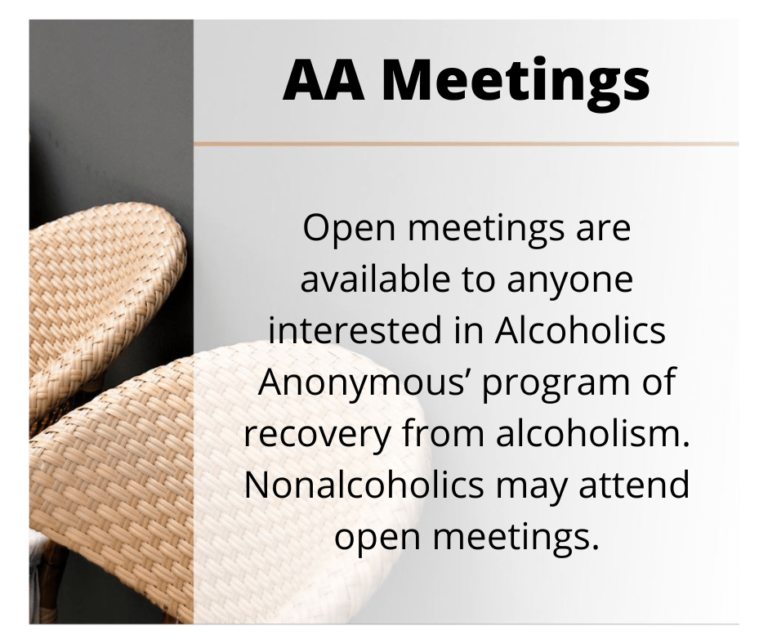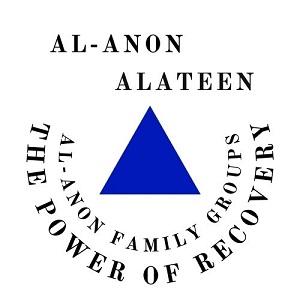24 Hour Helpline 510-839-8900 English 510-502-8560 Espanol Helplines are staffed 24/7 by A.A. member volunteers who have solved their drinking problem.
24 Hour Helpline 510-839-8900 English 510-502-8560 Espanol Helplines are staffed 24/7 by A.A. member volunteers who have solved their drinking problem.

Alcoholism is an illness that affects people of all ages, races, ethnicities, genders (or non-gendered), socioeconomic status, education levels, or other factors.
AA has a program of recovery that has helped millions of alcoholics live completely free from alcohol.
If your life seems to be going nowhere, or it feels out of control and you think drinking might be part of the problem, attending an AA meeting can often help you decide. As always, it is up to the individual to decide what course to take concerning any program.
The social stigma of alcoholism keeps many young people from seeking help long after they have recognized their drinking is different from their peers or is causing them problems.
No one is too young to be an alcoholic. Alcoholism is an illness that affects people of all ages—it doesn’t matter for how long, or how much you drank. What matters is how alcohol affects your life. If you find that once you start, you cannot stop or control your drinking, or that if you decide to quit, you cannot stay stopped, you may be suffering from the disease of alcoholism.
Many young people find that after just a few years (or even a few months) of drinking, the disease has progressed to the point where it has progressed after decades of drinking in others. Sometimes attending meetings is the best way to discover or decide if the program of AA is for you. There are many Young People’s meetings, young people are also very welcome to attend all meetings.
There are over 600 AA meetings a week in western Alameda and Contra Costa counties.
We hope you give AA a try—you can always go back to drinking if you find that works better for you.
Young People in A.A.

Stock photo. Membership in AA unknown.
For some people, problems cause them to search for a solution with alcohol or other substances. Others will lose control of their drinking later in life. Some of us were in trouble from the first drink. We might not have drank every day or even every week, but as the illness progressed the obsession to consume more alcohol or drink more frequently overtook us seemingly without notice.
Other people seem to lose control of their drinking regardless of problems or having no other problems. Only you can figure out if your problems are being caused by alcohol use. AA does not diagnose anyone’s drinking problems, we can show you how to diagnose yourself.
Loss of control once we start drinking and not being able to stay away from drinking are the primary indicators of alcoholism.
“At a certain point in the drinking of every alcoholic, he passes into a state where the most powerful desire to stop drinking is of absolutely no avail. This tragic situation has already arrived in practically every case long before it is suspected.” – Alcoholics Anonymous, page 24.
“We do not like to pronounce any individual as alcoholic, but you can quickly diagnose yourself”
AA was the first program that recognized the importance of self-admission or self- diagnosis for those suffering with a drinking problem.
Self-identification is the First Step of the Twelve Step recovery program.
If you think you have a problem with your drinking, ask yourself these simple questions:
Can you control how much you drink every time you drink?
Can you quit drinking and stay away from alcohol entirely on your own self-will?
If you answer “no” to either of these questions, and would like help, please take action.
AA is self-supporting through the members voluntary contributions.
The AA organization is owned and operated by the members in each region or country.
AA does not seek nor does not accept donations from nonmembers.
Newcomers are encouraged to attend meetings for free.
If drinking is causing you trouble, and you want to stop but can’t seem to do it on your own, give Alcoholics Anonymous a try. All of us felt strange about going to AA But we now see that AA saved our lives — and is the best thing that ever happened to us. We also now know that there are many members who are our age — in fact, approximately 10% of AA members are under the age of 30. – Alcoholics Anonymous World Services, Inc. Young People and A.A.
AA members frequently refer to alcoholism as cunning, baffling, powerful, but there is hope, and help.
Alcoholism is an illness that affects people of all ages, socioeconomic backgrounds, genders, abilities, orientations, nationalities, cultures, ethnicities and beliefs.
From its beginning, AA welcomed people from all walks of life, just as it does today. The only requirement for membership is a desire to stop drinking.
“Many of us felt that we had plenty of character. There was a tremendous urge to cease forever. Yet we found it impossible. This is the baffling feature of alcoholism as we know it – this utter inability to leave it alone, no matter how great the necessity or the wish.” – Bill W., cofounder of AA.

Stock photo. Membership in AA unknown.
Members of AA volunteer their time to answer helplines, chatlines, meet with those still suffering, take newcomers to meetings, visit detox centers, take meetings into institutions, and mentor those looking for a solution.
Giving back freely what was given, is the Third Legacy of the AA program.
Anonymity is always protected.
The AA recovery program is three fold, commonly referred to as the Three Legacies of AA.
Unity; the shared experience of active alcoholism, the shared experience of recovery.
Service; giving back what was freely given, in the spirit of true altruism.
Recovery: working the Twelve Steps of recovery with another alcoholic.
Recovery in AA is successful when the afflicted immerse themselves in a long term solution.
There are over three hundred Twelve Step groups that have adopted the AA Recovery Program, the foundation of the AA Traditions which give groups the guidance and direction needed to stay focused on the solution, not the problem.
There are thousands of programs over the past eighty years that have adopted many of the recovery concepts of AA for treating numerous problems. AA willingly shares the original Program and Traditions that have helped so many find a new way of life.
Experience suggests that each Twelve Step group maintains their singleness of purpose so that the newcomer can identify the problem and find the help they need.
Living up to the old adage, one alcoholic can help another alcoholic when all other efforts have failed.

Open AA meetings
Making the decision to go to an AA meeting can be intimidating and uncomfortable. Yet, it is a courageous first step in admitting to yourself that you may have a drinking problem that can be helped by the shared experience of recovered alcoholics.
Fortunately, every AA participant has had a similar experience. The organization itself was founded by recovering alcoholics. The success of this program is based on the concept that one alcoholic has the ability to help another alcoholic, as only an alcoholic can. The purpose of an AA Group is to cultivate a feeling of community and understanding to bring the program of solution to the alcoholic who still suffers.
Attendees of an AA meeting will be welcomed into the group. Discussion among new members is encouraged, but not required. Participants may share their personal stories, including commentary, experience, and readings from AA literature.


Alcoholism frequently affects the loved ones of alcoholics. Al-Anon uses the shared experience of its members to help newcomers better understand alcoholism, and find support from others who have faced similar experiences.
Al-Anon Family Groups is a Twelve Step program of recovery. Members are made up of people concerned with someone’s drinking problem.
Starting with the first gatherings of alcoholics in 1935, before the group or organization had a name, the families of alcoholics were meeting and sharing their experience with their loved ones. Loved ones joined their alcoholic family members in their gatherings and together, they sought out ways to support sobriety for the entire family.
Anonymity in AA.
“Our public relations policy is based on attraction rather than promotion; we need always maintain personal anonymity at the level of press, media, radio and films.“
We respectfully ask that AA speakers and AA members not be photographed, videoed, or identified by full name on all media platforms or in any published reports of our meetings, including those reports on public media platforms.
The assurance of anonymity is essential in our effort to help other problem drinkers who may wish to share our recovery program with us. And our Tradition of anonymity reminds us that AA principles come before personalities. – Copyright A.A. World Services, Inc. Understanding Anonymity in AA
– From A.A. World Services, Inc. Anonymity Letter to Media.

Service statement.
Responsibility of service activities is placed at the group’s level, and all service center activities are guided by the Twelve Traditions and the Groups’ will and conscience. Unity of purpose, thought, and deed is of primary importance in all East Bay Intergroup actions.
The continued advancement of the A.A. Program through the performance of service work is the ultimate objective of the East Bay Intergroup Service members.
The primary purpose of East Bay Intergroup, Inc. is to help inform the greater community about AA and alcoholism so that those who need help
can find recovery from alcoholism.
East Bay Intergroup is an organization created and sustained by AA groups in the San Francisco East Bay.
| Cookie | Duration | Description |
|---|---|---|
| cookielawinfo-checkbox-analytics | 11 months | This cookie is set by GDPR Cookie Consent plugin. The cookie is used to store the user consent for the cookies in the category "Analytics". |
| cookielawinfo-checkbox-functional | 11 months | The cookie is set by GDPR cookie consent to record the user consent for the cookies in the category "Functional". |
| cookielawinfo-checkbox-necessary | 11 months | This cookie is set by GDPR Cookie Consent plugin. The cookies is used to store the user consent for the cookies in the category "Necessary". |
| cookielawinfo-checkbox-others | 11 months | This cookie is set by GDPR Cookie Consent plugin. The cookie is used to store the user consent for the cookies in the category "Other. |
| cookielawinfo-checkbox-performance | 11 months | This cookie is set by GDPR Cookie Consent plugin. The cookie is used to store the user consent for the cookies in the category "Performance". |
| viewed_cookie_policy | 11 months | The cookie is set by the GDPR Cookie Consent plugin and is used to store whether or not user has consented to the use of cookies. It does not store any personal data. |